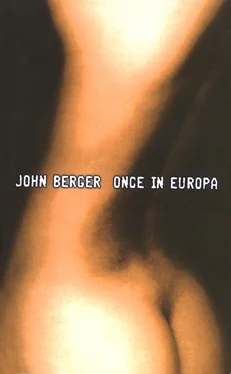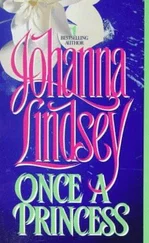John Berger - Once in Europa
Здесь есть возможность читать онлайн «John Berger - Once in Europa» весь текст электронной книги совершенно бесплатно (целиком полную версию без сокращений). В некоторых случаях можно слушать аудио, скачать через торрент в формате fb2 и присутствует краткое содержание. Год выпуска: 2014, Издательство: Bloomsbury Publishing, Жанр: Современная проза, на английском языке. Описание произведения, (предисловие) а так же отзывы посетителей доступны на портале библиотеки ЛибКат.
- Название:Once in Europa
- Автор:
- Издательство:Bloomsbury Publishing
- Жанр:
- Год:2014
- ISBN:нет данных
- Рейтинг книги:3 / 5. Голосов: 1
-
Избранное:Добавить в избранное
- Отзывы:
-
Ваша оценка:
- 60
- 1
- 2
- 3
- 4
- 5
Once in Europa: краткое содержание, описание и аннотация
Предлагаем к чтению аннотацию, описание, краткое содержание или предисловие (зависит от того, что написал сам автор книги «Once in Europa»). Если вы не нашли необходимую информацию о книге — напишите в комментариях, мы постараемся отыскать её.
Once in Europa — читать онлайн бесплатно полную книгу (весь текст) целиком
Ниже представлен текст книги, разбитый по страницам. Система сохранения места последней прочитанной страницы, позволяет с удобством читать онлайн бесплатно книгу «Once in Europa», без необходимости каждый раз заново искать на чём Вы остановились. Поставьте закладку, и сможете в любой момент перейти на страницу, на которой закончили чтение.
Интервал:
Закладка:
You were born, Christian, on April 10th. You weighed 3.4 kilos, you had blue eyes, hair softer than the thistledown of a dandelion, hands smaller than Stepan’s thumbs and legs like holy bread, with a zizi between them.
My mother hoped to keep you at home and put you on a bottle. I wanted to feed you myself. I had enough milk for twins. The boss at the Components Factory was obliging: so long as I did my quota, he wasn’t fussy about clocking in and out. I didn’t have to wait, like the others, till midday. When I felt my blouse wet on either side with milk, I left the machines thumping away and the metal shavings getting higher and higher on the shop floor. How you sucked! How you loved life! Then I had to get back early to sweep up the shavings and start again on tiny pieces for airplane hatches.
You were nearly a year old. You were taking your first steps on the earth, and after the fourth you’d fall back onto your bottom. Funny to think of this in the sky.
Emile was playing with you under the table. Régis had been out the night before and had drunk too much. It’s not the worst men who drink, the men who drink are the frightened ones, they don’t know of what, we’re all frightened, though at the age of eighteen I didn’t know any of this. Régis was arguing with Emile, who was under the table playing with you, about whether Corneille the cattle dealer’s Peugeot was dark blue or black. Emile was sure it was black. Régis was sure it was blue. They went on and on. Stop it! I cried out. You’re worse than children! Régis swung round so fast I thought he was going to hit me. You keep out of this! he said. You’ve got enough of your own business to mind, Odile! Better think what you’re going to do with your poor bastard of a kid! Shut your mouth! Emile seized Régis’s legs and he fell to the ground. At that moment Mother walked in and the three of us pretended nothing had happened. When Mother left, Régis, his head in his hands, a smear of blood under his nose, muttered: Blue, Corneille’s Peugeot is blue! I’m going for a walk, I said.
I walked along the rail track towards the Heaps. The last one was smoking. Soon they’ll be as high as the factory, I thought. Soon they’ll have covered our orchard, I thought. At home there are only three cows left. There’s nothing more dead in the world than this dirt left over after burning at two thousand centigrade. Twenty-two months down in the dirt is the bastard’s father. I had the courage to say those words to myself.
Every time I go over there to work, Giuliano the Sardinian told me after Stepan’s death, I’m not sure I’m going to come back.
Each wall, each opening, each ladder was like the bone of a sheep’s skull found in the mountain — fleshless, emptied, extinct. The furnaces throbbed, the river flowed, the smoke, sometimes white, sometimes grey, sometimes yellow, thrust upwards into the sky, men worked night and day for generations, sweating, retching, pissing, coughing, the Factory had not stopped once for seven years, it produced thirty thousand tons of ferromanganese a year, it made money, it tested new alloys, it made experiments, it made profits, and it was inert, barren, derelict. I went through the melting shop where the furnace for manganese oxide is in the sky, and Peter and Tito for the ferromanganese are well below it, yet still so high that when the coasting cranes teem their metal into the ladles, you squint up at the ladles like suns setting, and I knew how the womb in my belly was the opposite of all I could see and touch. Here’s a woman, I whispered, and the fruit of her womb. I knelt on my knees. Nobody saw me.
Horse leather is the best leather for gloves, Dilenka, it resists the heat.
I climbed up eight metal ladders, each one as high as hay in a barn, nobody stopped me, to the manganese-oxide furnace. This is where he fell. The fumes hurt my throat and I breathed deeply, yet nothing happened. I came down the eight ladders. I crossed the office space that had been the Ram’s Ballroom. I found the locker where he kept his horse-leather gloves and his blue shield. It had an Italian name on it now. I laughed. I surprised myself laughing. Our love was imperishable.
Across the footbridge we lived IN EUROPA. The river was low, for the thaw had not begun. On many days it was minus ten and the mountains were still imprisoned. There was no time, I was thinking as I watched the water of the Giffre, to show Stepan where to take the trout, only time for Stepan and Odile to meet and for Christian to be conceived. Upstream, between the rocks, something attracted my attention. I waited. It seemed to me that it turned its head. A lorry clattered along the road and it flew up, long legs dangling, to perch in a pine tree. It was a heron. A water bird that nests in the top of a tree, said Stepan. I’ve seen three herons in my life so far. One with Father when I was small enough for him to carry me, one with Stepan on a June evening, and one that Sunday in March ’56.
Stepan said the name of the heron was tzaplia , a creature from far away with a message. Waiting for its fish, it becomes as still as a stick. Which is why I wasn’t sure when I first spotted it. From the pine tree the heron surveyed the road, the factory grounds, the tall chimneys with their heads like the open beaks of gigantic fledgelings looking up for food, the manganese-oxide furnace, Peter, Tito, the turbine house, the cliff-face and that sky where I’m flying with my son. Of its message I was ignorant.
She was in a good mood, Mother. She gave us a kilo of honey, she said your blue eyes were going to break girls’ hearts, she changed your nappies. For once I wasn’t in a hurry to leave and we missed the bus back to Cluses and had to hitchhike. You made hitchhiking easy. With you in my arms, the very first car stopped. The driver leant back and opened the rear door. As we were climbing in, he spoke my name. He was wearing a cap over his eyes and he had a black beard. Yet something in the way he said my name was familiar, was old. Our eyes met and suddenly I recognised him.
Michel!
He leant his head back awkwardly for me to kiss his cheek. I guessed he couldn’t turn round, couldn’t move his legs, so I kissed him like that.
I was so sorry, Odile, when I heard about what happened, he said. I offer you my sympathy and all my condolences.
His voice had changed. Changed more than his face on account of his beard. Before, he had spoken like most people do, his voice close-up to what he was saying. Now his voice was far away, like a priest’s voice at the altar.
This is our son, Christian, I told him.
He touched your woolen bonnet with his hand and it was then I noticed the scars on it: they were violet — the same colour as molybdenum bread goes when it’s cooling. Where they were violet, there was less flesh.
You’re going where? he asked.
Cluses.
You live there?
I nodded. And you, Michel?
Lyons’s finished with me. The surgeons say I’m a masterpiece. Do you know how many operations I had? Thirty-seven!
He laughed and slapped his thigh so the sound should remind me it was made of metal. He was wearing well-pressed trousers, light-coloured socks, polished shoes.
You started to cry.
Developing his lungs! said Michel. He can’t run at his age, poor little mite, all he can do is to howl if he wants to fill his lungs. Here! Christian! Look!
He dangled a key-ring before your eyes and you leant your head against my breast and stopped crying.
And you, Michel?
I’m going to take on the tobacconist’s and newspaper shop at Pouilly.
How will you manage to—
Everything, Odile, everything. I can even climb a ladder! The trade union lawyers forced them to give me a pension. I don’t have to work too much.
Читать дальшеИнтервал:
Закладка:
Похожие книги на «Once in Europa»
Представляем Вашему вниманию похожие книги на «Once in Europa» списком для выбора. Мы отобрали схожую по названию и смыслу литературу в надежде предоставить читателям больше вариантов отыскать новые, интересные, ещё непрочитанные произведения.
Обсуждение, отзывы о книге «Once in Europa» и просто собственные мнения читателей. Оставьте ваши комментарии, напишите, что Вы думаете о произведении, его смысле или главных героях. Укажите что конкретно понравилось, а что нет, и почему Вы так считаете.












